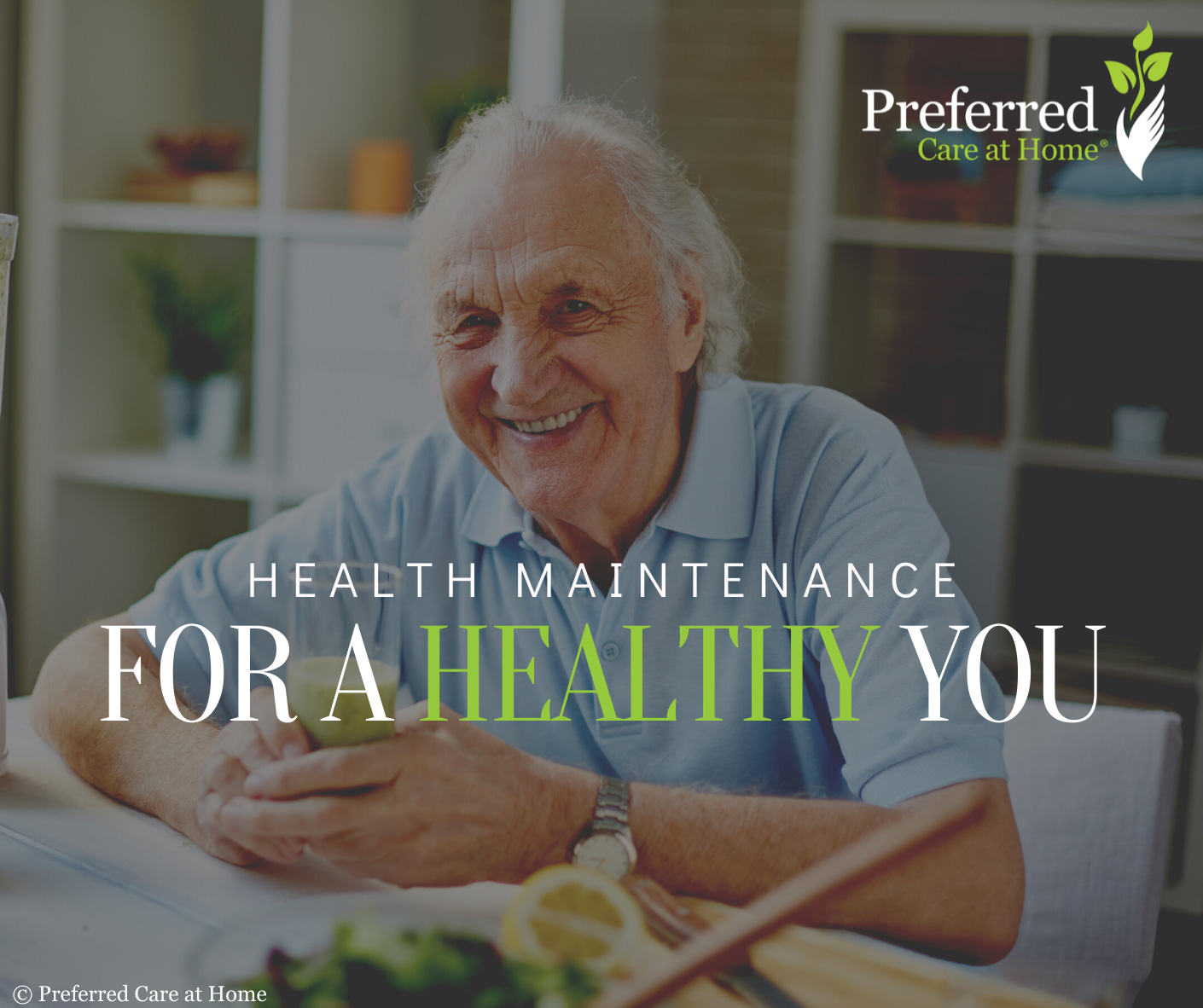Health Maintenance: 5 Considerations
Published December 2, 2021 by R. Bradley Robinson, M.D. in Senior Health & Wellness

With Thanksgiving Day now in the immediate rear-view mirror, the holiday season is in full swing. One of the many joys of the holidays is the opportunity to visit family members and spend time with loved ones. This time is also a great opportunity to reflect on and evaluate the health and wellness of our loved ones. Health maintenance is extremely important for seniors in order to maintain independence and promote active and fulfilling lifestyles. Let’s take a look at several important health maintenance categories to consider discussing this holiday season.
Health Maintenance: Aspirin therapy
Cardiovascular disease is prevalent among middle-aged and older adults, accounting for approximately 1 in 4 of all deaths worldwide.* Aspirin remains an important treatment for many individuals who have experienced a prior heart attack or stroke and can help prevent the recurrence of one of these negative cardiovascular events. Aspirin may be appropriate for prevention even in patients who have not previously experienced a heart attack or stroke, though the decision to start aspirin therapy should always involve a risk/benefit discussion with a physician.
Health Maintenance: Immunizations
Immunizations remain an important piece of health maintenance that can prevent deadly infectious diseases in older adults. Here are several shots you should make sure are up to date.
Tetanus vaccine: While tetanus is rare when it does occur it tends to affect undervaccinated older adults, and 60% of all cases in the US occur in persons over 60 years old.
Influenza vaccine: The CDC recommends that all adults receive the annual flu vaccine. This is particularly important for seniors, as 90% of influenza-related deaths occur in persons of 60 years or older.
Pneumococcal vaccine: Streptococcus pneumoniae (i.e pneumococcus) is the #1 cause of bacterial pneumonia and becomes more frequent and severe in older adults. There are two vaccines available and your physician can help determine whether you should receive one or both.
COVID-19 vaccine: Older adults are more susceptible to severe disease from SARS-CoV-2 infection, and the CDC recommends all older adults receive vaccination to help prevent serious illness and death.
Health Maintenance: Cancer Screening
Lung Cancer Screening: Annual CT scan of the chest using a low radiation dose technique has been shown to reduce mortality in high risk individuals.** Screening is recommended for persons 50-80 with a 20-pack year smoking history and either current smokers or former smokers who have quit in the last 15 years.
Colorectal Cancer Screening: Colorectal cancer is one of the leading causes of cancer deaths in the United States. Recent guidelines encourage all healthy adults over age 45 with at least 10 years life expectancy to undergo screening. There are several options available for screening which may include colonoscopy, stool testing, and/or CT scan of the colon.
Breast Cancer Screening: Breast cancer screening with mammography has proven to reduce breast cancer mortality. It is currently recommended for older women who are generally healthy with a life expectancy of 10 years. Any decision to forego screening should be made after a risk/benefit discussion with a physician.
Health Maintenance: Cardiovascular Screening
Blood pressure screening: High blood pressure (i.e. hypertension) remains the most significant risk factor for heart attack and stroke. Every older adult should have their blood pressure taken at least once a year to screen for hypertension and treat if necessary.
Lipid screening: This blood test looks for abnormally high levels of ‘bad’ cholesterol, which may elevate the risk of a negative cardiovascular event. Certain individuals may benefit from subsequent lipid-lowering medications.
Abdominal Aortic Aneurysm (AAA) screening: This one-time screening with an ultrasound imaging test is recommended for any man between 65-75 years old who has ever smoked. This has been shown to reduce death related to AAA’s as well as all-cause mortality in men.
Health Maintenance: Osteoporosis
I’ve written about the importance of bone health previously, but this is an important area of health maintenance that should not be overlooked. The FRAX tool (Fracture Risk Assessment Tool) is a commonly used calculator to determine one’s individual risk for developing a hip fracture or major osteoporotic fracture in the next 10 years. Some individuals may benefit from a radiology exam called dual-energy x-ray absorptiometry (i.e DEXA scan) to calculate the bone mineral density. These screening tools may then be used to guide treatment.
Conclusion
While not comprehensive, this list provides a great place to start when it comes to evaluating the health maintenance of a senior loved one. These topics can at times be confusing, which is why it’s important to reach out to your physician and talk about these issues together. Many times, there may not be a single ‘best answer,’ but the treatment plan will be tailored for your own goals and preferences. The most important thing is to make sure all of your questions are answered and that you are confident about the path forward toward a healthy tomorrow.
*The top 10 causes of death. World Health Organization; 2011. http://www.who.int/mediacentre/factsheets/fs310/en/index.html
**National Lung Screening Trial Research Team, Aberle DR, Adams AM, Berg CD, Black WC, Clapp JD, Fagerstrom RM, Gareen IF, Gatsonis C, Marcus PM, Sicks JD. Reduced lung-cancer mortality with low-dose computed tomographic screening. N Engl J Med. 2011 Aug 4;365(5):395-409.
If you have questions about senior home
care services or if you want to start care:
Related Posts

January 27, 2025
Is There a Food Allowance Card for Seniors?
Jody Guerrieri, RN.

January 27, 2025
What Causes Glassy Eyes in the Elderly?
Jody Guerrieri, RN.

January 27, 2025
What Age Is Considered a Senior Citizen?
Jody Guerrieri, RN.
Helping seniors age in place, with dignity & grace.